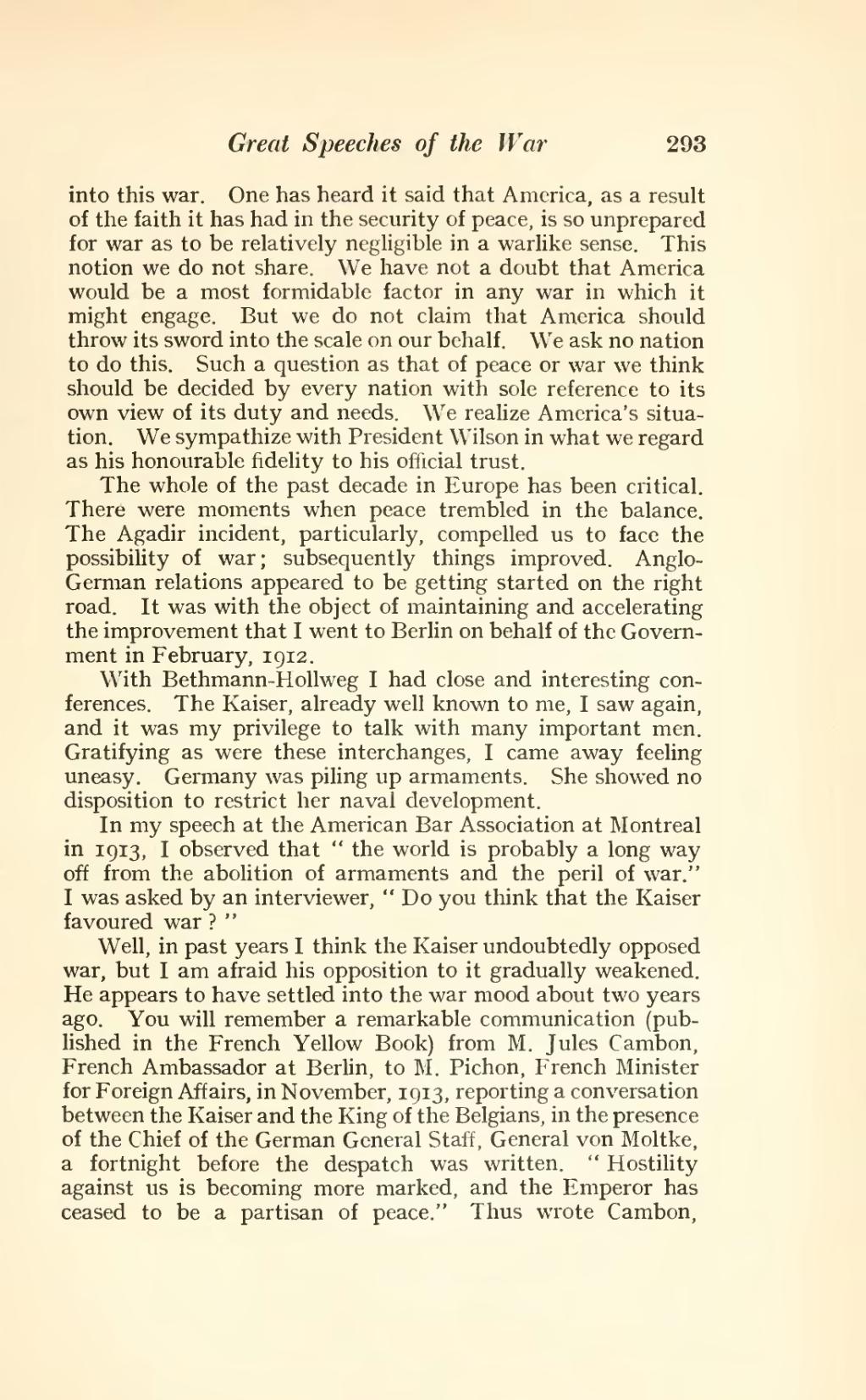into this war. One has heard it said that America, as a result of the faith it has had in the security of peace, is so unprepared for war as to be relatively negligible in a warlike sense. This notion we do not share. We have not a doubt that America would be a most formidable factor in any war in which it might engage. But we do not claim that America should throw its sword into the scale on our behalf. We ask no nation to do this. Such a question as that of peace or war we think should be decided by every nation with sole reference to its own view of its duty and needs. We realize America's situation. We sympathize with President Wilson in what we regard as his honourable fidelity to his official trust.
The whole of the past decade in Europe has been critical. There were moments when peace trembled in the balance. The Agadir incident, particularly, compelled us to face the possibility of war; subsequently things improved. Anglo-German relations appeared to be getting started on the right road. It was with the object of maintaining and accelerating the improvement that I went to Berlin on behalf of the Government in February, 1912.
With Bethmann-Hollweg I had close and interesting conferences. The Kaiser, already well known to me, I saw again, and it was my privilege to talk with many important men. Gratifying as were these interchanges, I came away feeling uneasy. Germany was piling up armaments. She showed no disposition to restrict her naval development.
In my speech at the American Bar Association at Montreal in 1913, I observed that "the world is probably a long way off from the abolition of armaments and the peril of war," I was asked by an interviewer, "Do you think that the Kaiser favoured war?" Well, in past years I think the Kaiser undoubtedly opposed war, but I am afraid his opposition to it gradually weakened. He appears to have settled into the war mood about two years ago. You will remember a remarkable communication (published in the French Yellow Book) from M. Jules Cambon, French Ambassador at Berlin, to M. Pichon, French Minister for Foreign Affairs, in November, 1913, reporting a conversation between the Kaiser and the King of the Belgians, in the presence of the Chief of the German General Staff, General von Moltke, a fortnight before the despatch was written. "Hostility against us is becoming more marked, and the Emperor has ceased to be a partisan of peace." Thus wrote Cambon,

